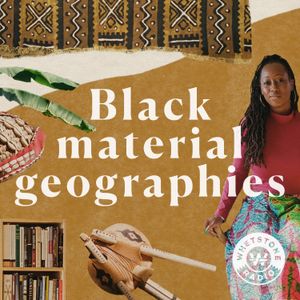
Black Material Geographies
Whetstone Radio Collective
Natural Dyeing & Oakland Youth
MAY 9, 202242 MIN

Natural Dyeing & Oakland Youth
MAY 9, 202242 MIN
Description
During this week's episode, Teju Adisa-Farrar discusses Oakland, natural dyeing, art, and urban farming. Fiber and plants are integral to not just the Black diaspora's history, but also human history more broadly. It is a granular exploration of the broader topic of regenerative production practices. Historically, most human products were created with local natural materials. It was a practical matter. Humans have been producing fiber and dyeing textiles in ways that we now consider "regenerative" throughout Asia, Africa and the Americas for centuries. Black Material Geographies is part of Whetstone Radio Collective. Learn more about Black Material Geographies here.Find show notes here.And transcript here.